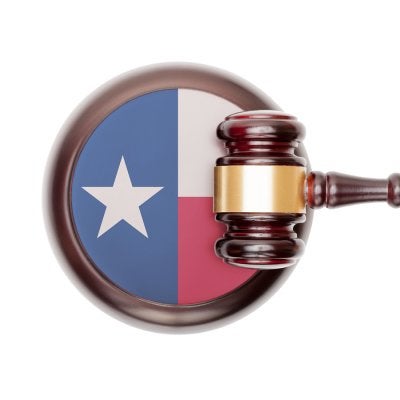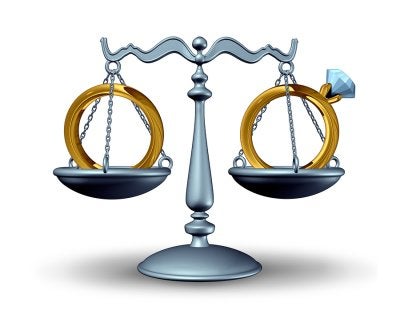-
What to Expect During an Evidentiary Hearing in Your Child Custody Case
When you hire a child custody attorney near Spring, TX, he or she will advise you of what to expect from all stages of the legal process. If you and the other parent cannot come to an agreement regarding child custody , then you may need to attend an evidentiary hearing. During this hearing, your family law attorney will represent you. Nevertheless, you and the other parent will have to testify under oath. While you are under oath, the other parent’s family law attorney will ask you questions, which you are required by law to answer truthfully. Just remember, in a court proceeding, if you do not remember something or do not know the answer to a question, you should say so.
To hear more about the role of the evidentiary hearing in family law, watch this video and consult your child custody lawyer. This expert discusses which other individuals may be questioned under oath at the hearing, such as a minor child. Additionally, certain experts may be called to testify.
-
Top Issues to Discuss with Your Texas Divorce Attorney
Going through a divorce can feel overwhelming at times. However, you may find some peace of mind knowing that your divorce lawyer serving Spring, TX, will handle the legal matters for you, while you focus on moving forward with your life. To help you stay organized, it’s always wise to jot down a list of questions and concerns you have for your divorce lawyer . Some common family law issues are child custody, visitation, support, and property division.

Child Custody
If the marriage produced a child, the child’s best interests should be the top priority for both parties. Even if your divorce is contentious, it’s important to realize that your child doesn’t share your feelings toward your soon-to-be ex-spouse and that your child needs both parents in his or her life. Your divorce lawyer can help you negotiate a child custody arrangement that preserves both parents’ relationships with the child.Visitation
Even when parents share joint custody, the child will generally reside with one parent more than the other, solely for practical purposes. When you meet with your family lawyer, discuss what you expect from the visitation schedule. Consider who might have the child for holidays, school vacations, and weekends. Additionally, consider whether the visitation schedule allows the child sufficient time for school projects, extracurricular activities, and social events.Child Support
Non-custodial parents will be required to pay child support. Generally, in Texas, a non-custodial parent of one child must pay 20 percent of his or her net monthly income. The percentage of net income set aside for child support increases when there are multiple children to support. Consider asking your child custody lawyer how to obtain and enforce a child support order if you are the custodial parent.Property Division
The division of assets and liabilities is another significant issue for divorcing couples. When you meet with your divorce lawyer, bring along a list of your marital assets and debts. Let your lawyer know which assets are most important to you and which you might be willing to let go to the other party. In Texas, community property is not necessarily divided on a 50/50 basis. Fault for the breakdown of the marriage and differences in earning potential of the spouses are factors that a judge might consider when dividing property and liability. -
Top 10 Reasons for Divorce in Texas [INFOGRAPHIC]
With more than half of marriages each year ending in divorce, it’s no surprise that there are a long list of reasons couples split. Most of the actual reasons couples divorce are emotional ones, including trust issues, jealousy, and disagreements over religious and cultural issues. However, when you go to a divorce lawyer to file your case, one of the first things he or she will do is try to match your reason for splitting with one of the seven legal grounds for divorce in Texas. That is just one of the reasons why it is so important to let a divorce lawyer handle your split as you negotiate family law issues like spousal and child support. Learn more about why couples divorce in this infographic from Andrew J. Bolton, Esq. , a divorce lawyer serving The Woodlands. Choose our practice when you need a divorce or family lawyer, and please share this information to help others facing this difficult situation understand their rights.

-
Answering Common Questions About Divorce in Texas
Generally, the process of divorce is similar across the country. However, each state sets its own specific family laws . So, if you’re a resident of Texas contemplating divorce, it’s in your best interests to consult a family law attorney serving The Woodlands as soon as possible. Your lawyer can advise you of the applicable laws, explain the steps of the process, and help you in protecting your legal rights.

How Long Does the Divorce Process Take?
If you’ve recently moved to Texas or to a new county in Texas, the divorce process can take a little longer than usual. As your divorce lawyer can inform you, Texas has a residency requirement. You or your spouse must have been a resident of the state for six continuous months. Additionally, one of you must have been a resident of the county in which the divorce papers will be filed for a minimum of 90 days. After the lawyer files the divorce petition, the divorce cannot be finalized for at least 60 days. However, if there are disagreements it may take longer to finalize a divorce.What Are the Grounds for Divorce?
Like almost all other states, in Texas, you can file for either a no fault divorce or a fault-based divorce. If you can prove that your spouse is to blame for the breakdown of the marriage, it may be in your best interests to file for a fault-based divorce. This is because the judge may consider the fault of the other spouse when determining questions such as the division of marital assets. The grounds for a fault-based divorce include adultery, abandonment, cruel treatment, long-term incarceration, long-term confinement to a mental hospital, and separate residency of at least three years.Can I Receive Spousal Support?
Spousal support isn’t alimony, and it isn’t automatically granted. However, your divorce lawyer can argue that you should receive spousal support payments. In many divorce cases, a judge may grant temporary spousal support while the divorce is pending if you are unemployed or have significantly lower wages than your spouse. Depending on whether the conditions are met, it is possible for spousal maintenance payments (or alimony) to be ordered paid for up to three years after divorce. -
What to Expect at Your First Meeting with a Divorce Lawyer
If you’re like most people, the first step in filing for divorce is meeting with a family law attorney in The Woodlands . Though every law firm is different, you should always expect to feel comfortable working with your divorce attorney. To ensure your attorney will help you feel comfortable, there are certain factors to look for in your first meeting with a potential divorce lawyer.

Experience in divorce law
Before you actually hire a particular attorney, you need to make sure that person has handled cases like yours before. However, you shouldn’t wait until your initial consultation to gauge his or her experience. Before you schedule a meeting, look for reviews online and check to see if the attorney has been the subject of professional misconduct cases before. This information is usually available on your state bar association’s website. You can also gauge your attorney’s experience by finding out how many years he or she has practiced family law.Informative in answering questions
The stage that your divorce case is in dictates what you and your attorney will discuss at that first meeting. For example, your discussions will be very different if your divorce papers have already been filed or you and your spouse have already pledged to use a collaborative divorce process instead of litigation. Either way, your divorce lawyer should be able to answer any general questions about an impending or recently filed divorce case. He or she should also be able to describe the next steps to take as your case progresses.Maintains confidentiality
No matter what you discuss with your divorce attorney, he or she is bound by attorney-client privilege. As a result, with very few exceptions, the information you discuss at your initial meeting should stay confidential. This is true even if you aren’t sure whether you want a divorce and only scheduled the meeting to gather information about the process. Your right to privacy is critical when it comes to communications between you and your attorney. As a result, you don’t have to worry that your spouse is going to discover what you said to your lawyer. -
Testifying In Divorce Court
When a party is required to give testimony in divorce court it is usually because there’s an argument over one of two questions. The first is child custody, and the second concerns property division.
If you listen to your lawyer, you often will hear the same piece of advice given about any type of courtroom testimony. It usually goes as follows: “Answer the question given to you, and only the question, do not elaborate.” An analogy: Only a little water will clean you up nicely–too much of it and you are likely to drown. Lawyers do understand that there’s a huge temptation to give the full story in response to a single question, but the more you speak the more ammunition you may give your opponent. To summarize, why assist the opposing lawyer in looking good? Keep it short!
Second, if you have made a huge mistake in life, do not volunteer it, but simply fess-up when asked. Trust me, if you’ve screwed up royally, the opposing lawyer has a witness who will remind the Court, and everyone else, what you did. It is always easier if you are the one to do it first, not in a dramatic way, but merely as an acknowledgement of human frailty. In short, if you are seeking custody and have had a drug problem, it will hurt you, and perhaps it should. But lying about it only to have a cop get on the stand afterwards, and talk about your long rap sheet will do much worse for you than simply admitting the problem yourself.
Third, never ever say on the witness stand: “You can’t prove it!” Or perhaps, “It’s my word against his/her’s.” The translation of these words to the Judge is: “Heck yes I did it Judge! But I’m not going to tell you that here!” The result of such testimony is the same as an admission of guilt, only worse.
Finally, always adhere to this advice: If you don’t know the answer to a question, then say that you don’t know–don’t speculate or guess! This advice applies even to things that you should know! Speculation gives the opposing party a chance to show the Judge that your testimony is unreliable. For example, you are arguing over custody of your third grade daughter and the opposing lawyers asks, “who’s your child’s homeroom teacher?” If you don’t know then say it; don’t blurt out “Smith!” Yes, not knowing hurts but judges understand that lawyers’ cross-examination questions are intended to hurt. In this scenario, your own lawyer might well come back and say “Well he doesn’t know the homeroom teacher, but he knows the names of the gym teacher, principals, ARD advisors, and every physician she’s ever been to!” That’s an ideal recovery to a missed question. So the underlying lesson to be learned here is: be prepared! Proper Prior Preparation Permits Peak Performance!
-
The Child Custody Process in Texas
Child custody can be a particularly sensitive topic for a divorcing couple. Because emotions can easily enter into such situations, a parent going through a divorce and custody proceedings may want to contact a law firm near The Woodlands for its experience expertise. A family lawyer can advocate on behalf of a parent to ensure a custody decision that takes into consideration the welfare of the child.

Mediation
In general, individuals divorcing in the state of Texas may be required to participate in child custody mediation. Courts urge couples to decide for themselves the custody arrangements for their children without the need for litigation. A family law attorney can help parents discuss their custody desires amicably and prepare the necessary paperwork to see through these arrangements. A family law expert can also inform couples of their custody options and what regulations come with each custodial choice. Should a couple not come to mutually agreeable terms about child custody, court determination may be the next step in the custody process.Court Determination
If the court becomes responsible for deciding child custody issues, a judge may consider any number of factors before making a determination. Because the child’s welfare is the primary concern, a judge may look over the financial circumstances of each parent to ensure that the child’s basic needs can be looked after in a given home. He might also evaluate the well-being of each parent to see if one adult or the other is physically or emotionally better equipped to have child custody. The wishes of the child may also play a role in a court determination of child custody. Older children may be asked if they have a preference of parent with whom they would like to reside. Other considerations such as the locale of each parent can also help in determining who should receive custody. A family law attorney can help a parent provide the necessary information to allow him or her to best demonstrate parental strengths so that an outcome can be reached which reflects his or her custodial wishes. Once a decision is made by the judge, all parties are legally obligated to abide by it. -
How to Choose a Divorce Attorney
The end of a marriage can affect every part of your life. Aside from the emotional consequences of divorce, you must consider the financial ones as well. As a result, finding the right family law attorney serving The Woodlands is key for your future security and well-being. Because divorce is not an event that many people experience often in their lives, few have significant knowledge about how to choose a divorce attorney. If you are in need of a lawyer, keep these guidelines in mind during the selection process:

Evaluate Your Options
An impeding divorce can be a worrisome situation even under the best of circumstances. You may feel pressed to choose the first attorney that a friend recommends or a commercial suggests, but it is important to exercise patience until you feel wholly comfortable with a particular attorney or law office . With this in mind, you can use resources such as loved ones and media outlets to create a list of potential candidates with whom you would like to discuss your case.Set Up a Consultation
Family law experts often allow for complimentary meetings with prospective clients so that they can learn more about the case. This first appointment may be all the time you have before deciding if you want to use a particular divorce lawyer, so come to each consultation prepared with questions. You should also observe how each attorney interacts with you. Indeed, this lawyer may be a person with whom you must work with for several months or longer. Having a comfortable professional relationship is often critical for an optimal legal outcome.Give the Lawyer the Necessary Facts to Assess the Case
As you consult with each divorce lawyer, you may want to bring up specific circumstances that may impact the details of your divorce. For instance, did you sign a prenuptial agreement with your spouse? You should also tell each attorney if you have children, as the status of your current child custody and child support arrangements could affect the outcome of your divorce. Knowing that your lawyer has a background helping clients with such aspects of their divorces can better ensure that you too can experience a favorable result. In any event, when consulting with an attorney, do not withhold negative information about yourself. Rest assured, if you keep your attorney ignorant of your dirty laundry, your spouse will not keep the opposing attorney similarly in the dark. Your attorney needs to prepare a response to negative information about you – and that’s best done weeks or months in advance of a trial, versus standing in front of the judge. Disclose everything as soon as possible. -
Answers to Your Questions About Getting Divorced in Texas
Every state has its own laws and regulations governing the divorce process, so someone petitioning for divorce should discuss his or her case with a local divorce lawyer. In Texas, a couple can only petition for divorce if at least one of the spouses has been a resident of the state for a continuous six-month time period. A family law attorney in the Woodlands will also advise the couple that one of the spouses must have been a resident of the county it wishes to file for at least 90 days.

What is the divorce procedure?
Usually, a Texas divorce case begins with one spouse filing an Original Petition for Divorce with the court and then personally serving the papers upon the other spouse. However, the other spouse may also sign a waiver to give up the right to be personally served with the papers. Thereafter, they begin the discovery process. Spouses may also discuss the settlement of their case directly or with the help of an attorney. If the parties cannot agree on all the issues of their divorce case, then the court will likely set a trial date.How long does it take to finalize?
In Texas, it takes a minimum 60 days after the petition is filed for the divorce to become final. As a part of this process, the judge will pronounce the divorce final in open court and sign the divorce decree. If the spouses do not agree, it will likely take around six months to a year to finalize, depending on the complexities of the case.How is property divided?
A Texas family law firm understands that courts initially presume that all property earned or acquired by either spouse during the marriage becomes community property. Separate property consists of property, brought into the marriage, and may also refer to any property acquired by just one spouse as a gift or through inheritance. Even though courts usually split property equally, factors such as unequal earning power and fault in the marital relationship can influence how a court divides the property. -
Grounds for Divorce
A number of states provide for fault-based divorce grounds. This means that a spouse and his or her divorce lawyer in The Woodlands can claim the other spouse was at fault for the end of the marriage. Common grounds for fault divorce claims include adultery, cruelty, and abandonment.
In this video, a family law attorney explains the difference between filing a fault and no fault divorce petition. As he explains, someone only needs to allege the irretrievable breakdown of marriage or irreconcilable differences in a no-fault divorce claim. No-fault divorce empowers a couple to end their marriage if they desire without citing a legal reason. No-fault divorce represents a modern trend in family law. Even if the petitioned spouse doesn’t wish to divorce, he or she cannot object to the divorce proceedings. In traditional fault divorce cases, the petitioned spouse could object to the grounds for divorce.
RECENT POSTS
categories
- Uncategorized
- Estate Planning
- Probate
- Family Law
- Drafting a Will
- Divorce Lawyer
- Texas Family Law
- Divorce
- Real Estate
- Probate Court
- Child Custody
- Andrew J. Bolton
- Esq.
- Adoption
- Law Office of Andrew J. Bolton
- Wills
- Executor
- Infographic
- Guardianship
- Trusts
- Contested Divorce
- Child Support
- Attorney
- Living Wills
- Contested Will
- Prenuptial
- Probate Bond
- Heir Apparent
- Legacy Contact
- Living Trusts
- legal guardian
- Legal Disputes
- property rules
- Common Law
- Stocks
- Estate Tax
